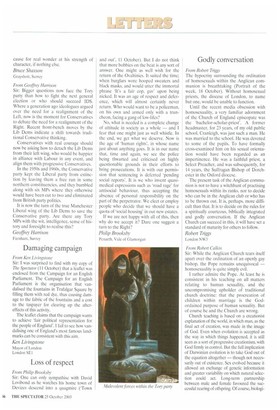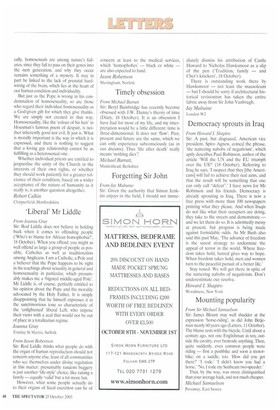From Robert Calkin Sir: While the Anglican Church tears itself
apart over the ordination of an openly gay bishop, the Pope remains unequivocal — homosexuality is quite simply evil.
I rather admire the Pope. At least he is consistent in his teaching on all matters relating to human sexuality, and the uncompromising upholder of traditional church doctrine: that the procreation of children within marriage is the Godordained purpose of human sexuality. But of course he and the Church are wrong.
Church teaching is based on a creationist explanation of the world, in which man, as the final act of creation, was made in the image of God. Even when evolution is accepted as the way in which things happened, it is still seen as a sort of progressive creationism, with God firmly in control. But the full implication of Darwinian evolution is to take God out of the equation altogether — though not necessarily out of existence. Sex evolved because it allowed an exchange of genetic information and greater variability on which natural selection could act. Long-term partnership between male and female favoured the successful rearing of offspring. Of course, biologi cally, homosexuals are among nature's failures, since they fail to pass on their genes into the next generation, and why they occur remains something of a mystery. It may in part he linked to the lack of prenatal hardwiring of the brain, which lies at the heart of our human condition and individuality.
But just as the Pope is wrong in his condemnation of homosexuality, so are those who regard their individual homosexuality as a God-given gift for which they give thanks. We are simply not created in that way. Homosexuality, like the 'colour of his hair' in Housman's famous poem of despair, is neither inherently good nor evil. It just is. What is morally important is the way in which it is expressed, and there is nothing to suggest that a loving gay relationship cannot be as fulfilling as a heterosexual one.
Whether individual priests are entitled to jeopardise the unity of the Church in the interests of their own rights, or whether they should work patiently for a greater tolerance of their condition, based on a wider acceptance of the nature of humanity as it really is, is another question altogether.
Robert Calkin
Chipperfield, Hertfordshire



































































































 Previous page
Previous page